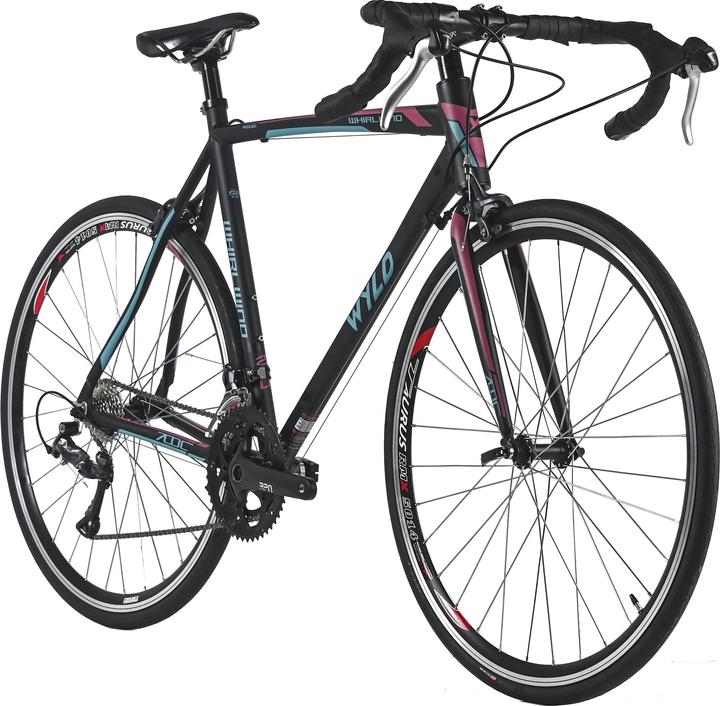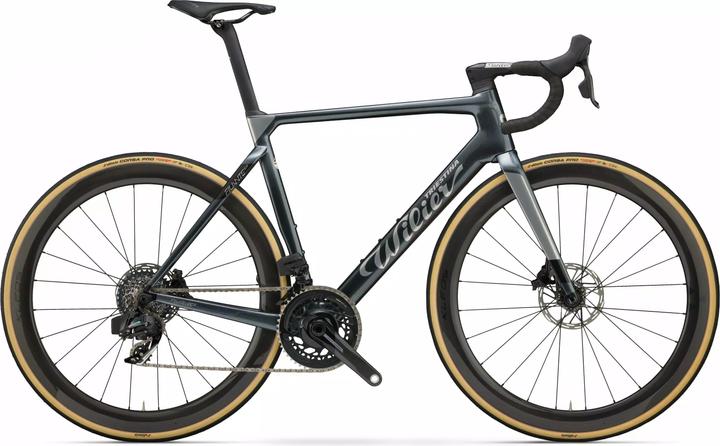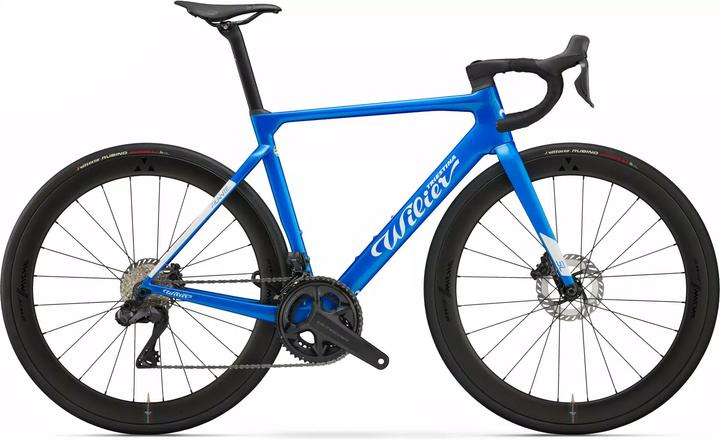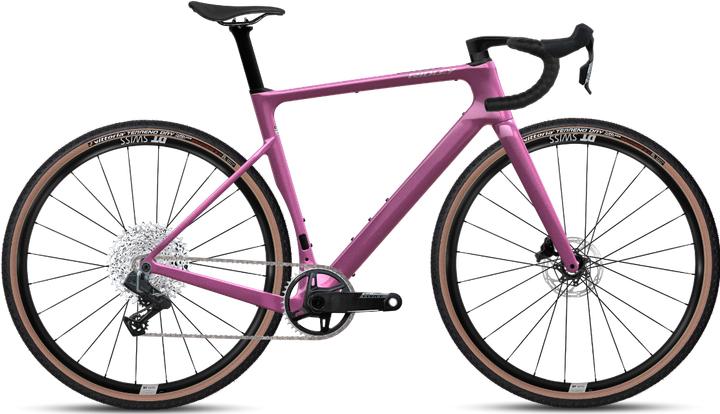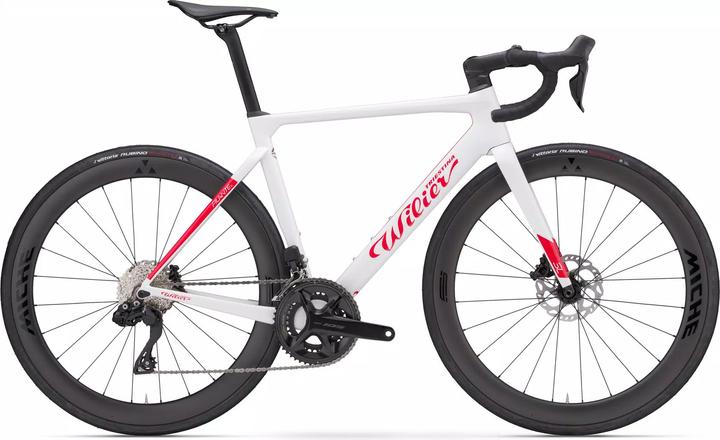
Too Many Racing Bikes? Here's How to Choose the Right One
These five key factors will help you find the racing bike that fits your needs.
Last updated 2 days ago. Automatically generated content.
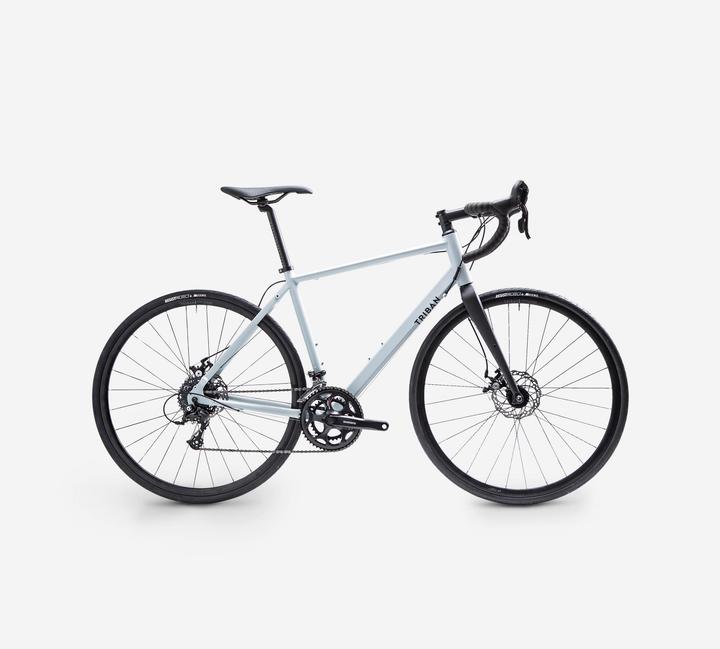

Select options and limit the number of products
Frame material refers to the core substance used in constructing a racing bike's frame, which directly affects the bike’s weight, ride quality, and overall performance. Choosing the right frame material is essential for balancing factors like speed, comfort, durability, and budget, especially for different riding styles and skill levels.
Popular options (you can select more than one)
Carbon
Typical price
4600.– to 6900.–Made from lightweight carbon fiber, offering excellent stiffness while minimizing overall weight.
Ideal for riders seeking maximum speed and responsiveness, especially in competitive racing or long-distance events.
Bestseller
Aluminium
Typical price
440.– to 520.–Constructed from aluminum alloy, providing a strong frame with moderate weight at a lower cost.
Recommended for those looking for durability and affordability, making it suitable for training, commuting, or entry-level racing.
Bestseller
The braking system determines how effectively a racing bike slows down or stops, directly impacting safety and control. Choosing the right type is important for handling, reliability, and performance, especially in different weather or terrain conditions.
Popular options (you can select more than one)
Disc brake
Typical price
9300.– to 13 000.–Uses rotors attached to the wheel hub and calipers to provide consistent stopping power.
Performs well in wet or muddy conditions, making it ideal for racing and all-weather riding.
Bestseller
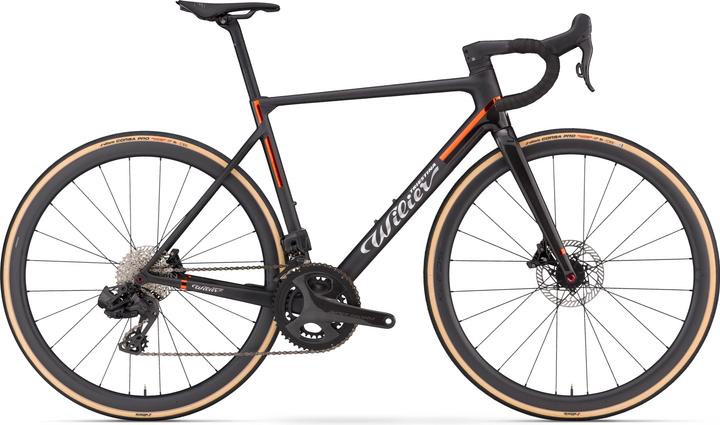
Wilier Bike Verticale Slr Super Record Wrl Ser Ie S Kleos Rd 36 L Core Black-
56 cm
Hydraulic
Typical price
3200.– to 7800.–Employs fluid-filled lines for smooth and modulated braking response.
Offers precise control and minimal hand effort, suitable for long rides or competitive events.
Bestseller
Rim brake
Typical price
420.– to 520.–Applies braking force directly to the wheel rim using pads.
Lightweight and easy to maintain, preferred for dry conditions and road racing where every gram counts.
Bestseller
Frame height refers to the vertical measurement of the bike frame, which determines how well a racing bike fits your body size and leg length. Choosing the right frame height is important for comfort, efficient power transfer, and injury prevention, directly affecting riding performance and enjoyment.
Popular options
48 - 52 cm
Typical price
9300.– to 13 000.–Designed for riders with a shorter inseam, typically suited for heights up to about 5'6" (167 cm).
Provides better control and comfort for smaller riders, reducing strain and making longer rides easier.
Bestseller
53 - 56 cm
Typical price
6900.– to 11 000.–Fits most average-height riders, generally those between 5'7" and 5'10" (170-178 cm).
Offers balanced handling and efficient pedaling for the majority of adults, making it a versatile choice.
Bestseller

Wilier Bike Verticale Slr Super Record Wrl Ser Ie S Kleos Rd 36 L Core Black-
56 cm
57 - 62 cm
Typical price
490.– to 11 000.–Intended for taller individuals, usually above 5'11" (180 cm) with longer legs.
Ensures proper leg extension and stability for taller riders, improving comfort and performance on long rides.
Bestseller
The number of gears on a racing bike determines how many distinct speed and resistance settings are available, directly affecting riding efficiency and comfort. Choosing the right gear range is important for matching your riding style, typical terrain, and personal fitness, ensuring smooth shifting and optimal performance.
Popular options
12 - 13 x
Typical price
5200.– to 5200.–Features a compact set of gears, usually found on entry-level or minimalist racing bikes.
Best suited for flat terrain and riders who prefer simplicity and lighter bikes, with fewer shifting options to manage.
Bestseller
14 - 20 x
Typical price
420.– to 520.–Offers a moderate gear range, balancing versatility and weight for various riding conditions.
Ideal for recreational cyclists and those who ride mixed terrain, providing enough options for hills and flats without overwhelming complexity.
Bestseller
21 - 24 x
Typical price
9300.– to 13 000.–Includes a wide selection of gears, often seen on performance-focused and endurance racing bikes.
Recommended for riders tackling steep climbs, long distances, or variable terrain, delivering precise control and adaptability in challenging conditions.
Bestseller

Wilier Bike Verticale Slr Super Record Wrl Ser Ie S Kleos Rd 36 L Core Black-
56 cm
